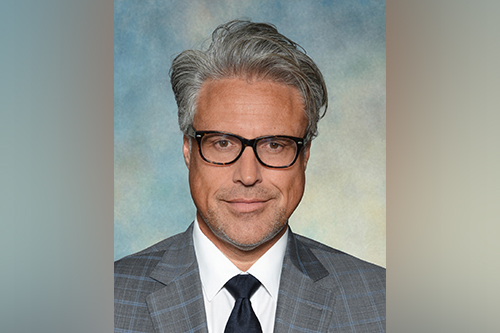
This month, the 2019 Hot List showcased professionals who have made a significant contribution to the K-12 education space over the past 12 months.
Named among this year’s winners was one of Australia’s most innovative thinkers and educators – Adriano Di Prato, deputy principal of Marcellin College in Victoria.
Notably, Di Prato has been working with Future Schools Alliance (FSA) in sharing knowledge and expertise with member schools via scheduled events and online UnScriptED webinars.
An area that features prominently in Di Prato’s knowledge and expertise is design thinking.
He says that while project-based learning (PBL) isn’t new, it is becoming more relevant for personalised learning in today’s schooling.
One of the central features of high-quality PBL, says Di Prato, is the pedagogical relationship between the driving question and the “need to know” that stems from it – the deep dive inquiry.
“At Marcellin we build on methods from across the fields of design to create learning experiences that support young men in unlocking their creative potential and applying it to real world contexts,” Di Prato told The Educator.
“Our goal is to help each student use design thinking as a metacognition mode of learning how to learn to grow, to connect and to make change.”
Di Prato said the best example of the impact of using Design Thinking as a pedagogical methodology has been in VCE Visual Communication Design.
“Design Thinking has led to an increase in student engagement, motivation and academic outcomes in the area of Visual Communication Design, often outperforming the school median study score by a minimum of four higher points, each year,” he said.
Di Prato has worked at a variety of Catholic secondary schools throughout metropolitan Melbourne over the past 20 years. He says the most significant emerging trend he sees facing the sector is relevance.
“We know that religion is suffering, it’s clearly on the nose,” he said.
“One only has to look at the 2016 Australian Census data to see we are on a secular slide with 29.6% of people saying they have ‘no religion’.”
Di Prato said that with Australia’s rapidly changing population “more godless”, the broader question for Catholic educators should be “the relevance of this rich faith history for today’s world and schooling”.
“A world that all are anxious in its uncertainty, particularly the young, whom are often paralysed by their own sense of entitlement and individualism,” Di Prato said.
“It might not surprise you that I still believe Catholicism is worth staying in. I believe in what the Gospel inherently proclaims and Jesus’ unwavering mission of love, compassion and forgiveness.
“Catholic schools today need to bring a different perspective, a harmonious witness to today’s schooling for tomorrow’s world.”


